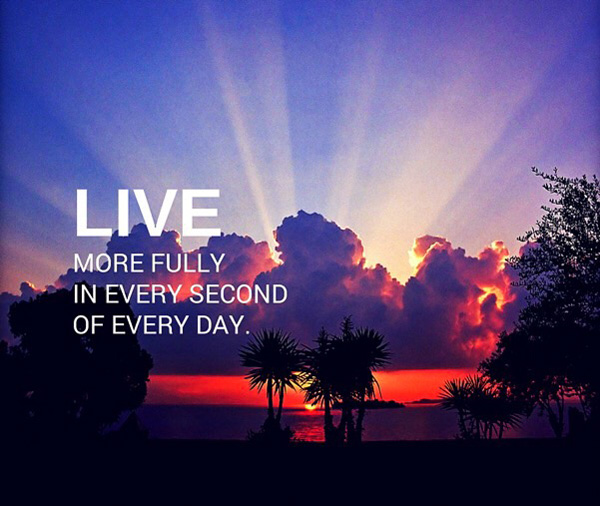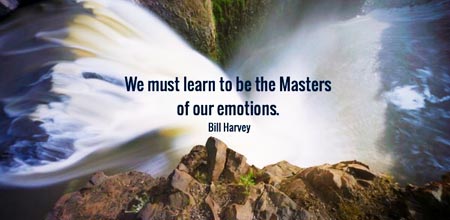Created March 14, 2024
Welcome to this week’s Bill Harvey Blog.
The amount of information being processed daily by the average human being has been accelerating ever since the invention/discovery of written language.

In my 1976 book Mind Magic I postulated that the amount of information being processed daily by the average human being has been accelerating ever since the invention/discovery of written language.
And I theorized that this was the cause of a mental/emotional state I called Emergency Oversimplification Procedure (EOP). This is a state of consciousness in which questions are set aside, experiences are not assimilated, personal effectiveness is reduced, creativity is blocked, the awe and wonder of life is invisible, one subscribes to black vs. white thinking imposed by others, one has prerecorded responses used all the time, new learning and growth are stultified. One is coping but not mastering life. One is a conditioned robot.
In 2011, in this article, I started using the term “Acceleritis” to describe the condition of information overload acceleration over time.
Recently my wife Lalita gave me a birthday present of a new book called Stolen Focus: Why You Can’t Pay Attention—and How to Think Deeply Again by Johann Hari. In this book, the author documents social scientists’ work, essentially proving that my theory is correct. Both the author and the scientists whose work he cites add greatly to the picture, and I highly recommend reading this book for that reason, and because it also is a great read.
We can regain the use of our individuality, solve our problems by focused attention, be happier, and give back more to others. We can accelerate our growth by slowing down and choosing what to do next based on real value.

Hari concludes that external forces have caused our inability to concentrate, rather than being caused by a lack of willpower on our part. He divides the book into chapters to review these external causes one by one. And he starts with the digital devices which are so obviously part of the problem. One citation is a 2016 study which found that we touch our phones an average of 2,617 times every 24 hours.
Interestingly, he also cites studies which use data from digital platforms to prove that acceleration is going on. For example, a 2019 paper in Nature Communications, “Accelerating Dynamics of Collective Attention”, studied the major digital platforms and found that over time, topics spiking in public interest last shorter and shorter times before wearing out. For example, trending hashtags in Twitter (now X) remained in the top 50 for 17.5 hours on average, but by 2016 that had dropped to 11.9 hours. Similar accelerations were found in Google and Reddit but not in Wikipedia. The appearance and disappearance of new phrases were analyzed across millions of books in Google Books published since 1880 and the pattern looked a lot like Twitter’s (now X).
(In a recent meeting I was asked if they should be worried because their ad recall scores appear to be dropping over a period of years. I explained that day-after TV ad recall scores averaged 26% when I first got into the business and were now 4%, so they shouldn’t take it personally.
I also mentioned that attention to ads and everything else has shortened dramatically during my tenure, and in our biggest media type today, digital, it is 1-2 seconds.
Since that meeting I’ve seen results of a neuro study where eye tracking showed that, out of hundreds of viewable social media ads, 90% of them got 1 second of attention or less – and this was in a laboratory forced viewing environment.)
Hari also interviewed Mihaly Csikszentmihalyi, the famous psychologist who coined the term Flow state, and had been an advisor to The Human Effectiveness Institute, and the author makes the connection between the state of distraction blocking Flow state, and advises slowing down, getting more sleep, staying off devices in much the way you’re used to reading in my posts here.
The amount of research covered in this book is impressive, and the writing is excellent. Where my own work is additive to this superb body of work lies in two main areas. (These may be addressed later in Hari’s book which I am not quite halfway through. I’ll let you know.)
One is the art and science of introspection. It’s important to spend as much time in Flow state and this is accomplished by first learning how to bring on the Observer state. Mind Magic and Powerful Mind are my two books on that subject. Powerful Mind was serialized in this blog last year and the book version will be out this year.
The other is our culture’s lack of an inspiring sense of mission for the vast majority of people. This is what causes the desire for distraction and the willingness to be led like sheep down any path that gives us a pleasant diversion from lives devoid of purpose and meaning. This is the source of the awful notion of killing time.
My recommendations as to how to develop an inspiring sense of mission are also included in the latter two books, and in my science-spirituality-synthesis nonfiction books A Theory of Everything Including Consciousness and “God” and You Are The Universe: Imagine That. The essence of my message: it is quite possible that we ourselves are part of a consciousness of such power that it earns the word “God”, and that if we watch for clues, we find we are being guided by events toward sharing our gifts with the world.
Because my view of reality is so different, I felt it would be necessary to also write fiction books which illustrate what I mean by getting into various characters’ heads. Hence Agents of Cosmic Intelligence, my series of four (so far) sci-fi/alternate history novels. In fact, Episode 1, The Great Being, was just published and became available on this site and Amazon yesterday.
We can regain the use of our individuality, solve our problems by focused attention, be happier, and give back more to others. We can accelerate our growth by slowing down and choosing what to do next based on real value.
If you have questions, please feel free to have a conversation with my Soopra AI.
Love,
![]()



